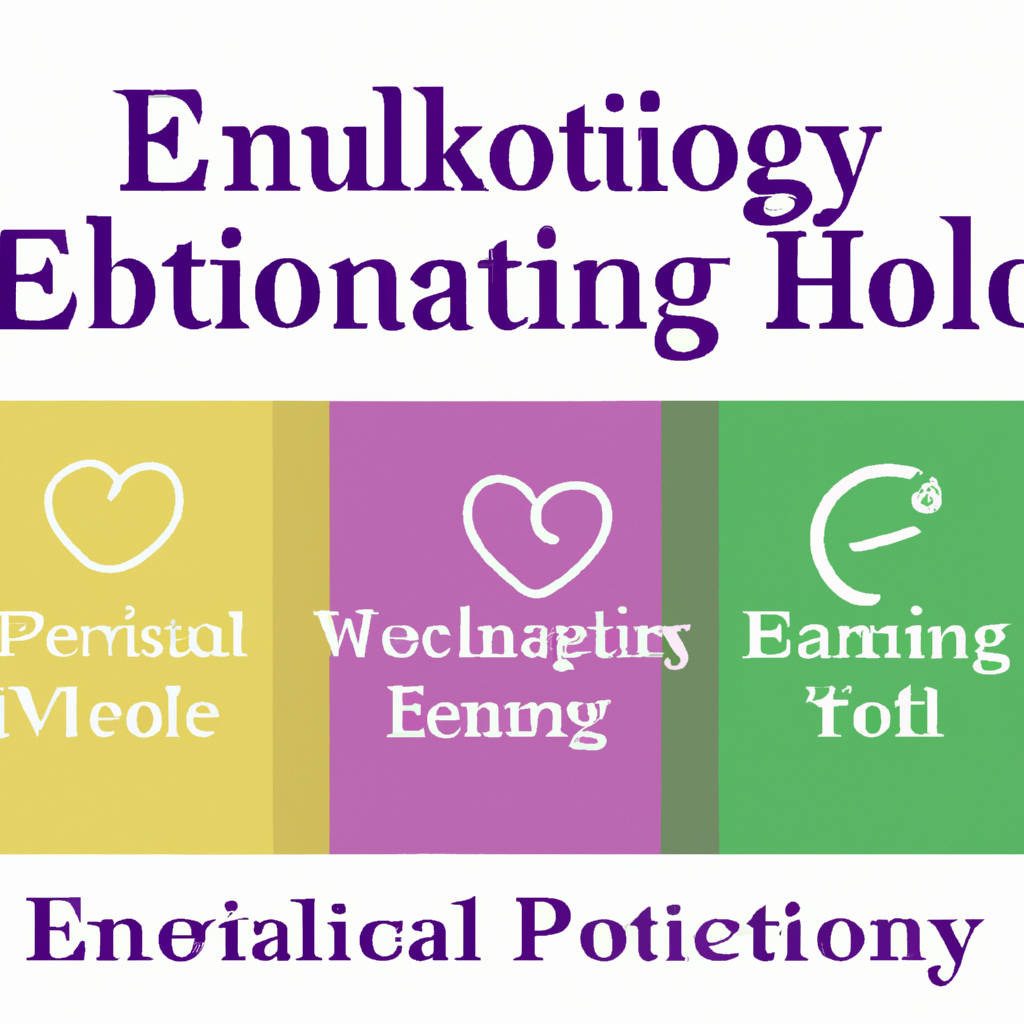Improving one’s intimate life can be achieved through a variety of methods. Communication, for instance, is a crucial component. Being open and honest about your desires, boundaries, and concerns with your partner can pave the way for a more satisfying experience. Exploring and understanding your own body and what gives you pleasure can also be beneficial, as this knowledge can be shared with your partner to enhance mutual satisfaction. Regular exercise can boost your stamina and increase your overall health, which can reflect positively on your intimate life. A balanced diet also plays a significant role as certain foods can increase libido and improve energy levels. Stress can have a negative impact on your intimate life. Hence, incorporating relaxation techniques such as deep breathing, meditation, or yoga into your daily routine can help manage stress levels. Regular check-ups with a healthcare provider can ensure any underlying conditions that might be affecting your intimate life are addressed. It’s also important to prioritize sleep as lack of it can result in low energy levels and affect your mood. Lastly, maintaining an emotional connection with your partner can help create a more fulfilling intimate relationship. This can be achieved by spending quality time together, showing appreciation, and expressing love and affection regularly.
Understanding Your Needs and Desires
Understanding your needs and desires is a critical aspect of self-discovery and personal growth. This comprehension not only illuminates who you are as an individual, but also guides your actions, decisions, and goals in life. It is essential to differentiate between needs, which are basic requirements for survival, such as food, shelter, and emotional fulfillment, and desires, which are more aspirational and relate to personal dreams and ambitions. It may seem simple, but it requires a deep level of introspection and self-awareness.
To truly understand your needs, you must develop a keen sense of self-awareness. This includes understanding your physical, emotional, and psychological requirements. You may need to invest time in learning about nutrition, fitness, mental health, and other aspects that contribute to overall wellbeing. On the other hand, identifying your desires involves exploring your passions, interests, and dreams. This could entail soul-searching, experimenting with different hobbies, and contemplating your life’s purpose.
While the process of understanding your needs and desires can be challenging, it is also rewarding. It can help you to make better decisions, set achievable goals, and lead a more fulfilling life. It is not about being selfish, but about understanding what makes you happy and content. It can even contribute to better relationships, as understanding your own needs and desires can help you understand and empathize with those of others.
As you go through life, it’s important to keep revisiting your needs and desires. They may change as you grow and evolve. By continuously reflecting on them, you can ensure that your actions and decisions align with your true self. Remember, the journey to understanding your needs and desires is a lifelong process, filled with lessons, growth, and self-discovery.

Effective Communication with Your Partner
Effective communication is a critical component of maintaining a healthy and fulfilling relationship with your partner. It involves more than just talking and listening; it’s about understanding and interpreting your partner’s thoughts, feelings, needs, and desires. Both verbal and non-verbal cues play a significant role in such exchanges. Openness and honesty are key elements in effective communication, where each party expresses their thoughts and feelings without fear of judgment or retribution. This openness cultivates trust and understanding, thereby fostering a deeper bond between partners.
Respect is another factor that should never be overlooked in communication. Each person must value the other’s viewpoint, even when it differs from their own. It’s essential to consider your partner’s perspective, as this will help to avoid misunderstandings and conflicts. Additionally, active listening skills are crucial. When your partner speaks, give them your undivided attention, show empathy, and use positive body language to show that you value their input.
Moreover, clear communication involves expressing your expectations and needs directly. Instead of assuming your partner knows what you want, state your needs explicitly. This helps to prevent misinterpretations and avoids unnecessary disappointments. Also, it’s crucial to use “I” statements when communicating your feelings or needs, to prevent your partner from feeling attacked or defensive.
Patience plays a vital role in effective communication too. Take time to fully understand your partner’s point of view before responding. Hasty reactions often lead to misunderstandings and conflicts. Remember, it’s not about winning an argument but understanding each other better.
Lastly, be mindful of your tone and choice of words. A harsh tone can escalate a simple conversation into a heated argument. Similarly, negative or hurtful words can inflict deep emotional wounds that can strain the relationship. Therefore, it’s always advisable to maintain a calm and respectful tone, and use positive, affirming words during discussions.
Effective communication with your partner is not an overnight achievement but a continuous process that requires commitment, patience, and practice. By fostering these qualities, partners can enjoy a more harmonious, understanding, and fulfilling relationship.
Exploring and Experimenting Together
Exploring and experimenting together signifies a collective journey of discovery and innovation. It embodies the spirit of shared curiosity, creativity, and the pursuit of knowledge. This concept is applicable across various fields and disciplines, such as science, art, technology, business, and even interpersonal relationships. In the realm of science, for instance, teams of researchers work together to explore new frontiers and test their hypotheses through rigorous experiments. This collaborative approach is essential in advancing our understanding of the world and in driving innovation. In the realm of art, artists often collaborate to push the boundaries of their craft, exploring new techniques, styles, or themes and experimenting with different mediums and formats. In business, teams brainstorm and test new ideas to improve products or processes, identify opportunities, and tackle challenges.
And in relationships, exploring and experimenting together can mean seeking out shared experiences, learning about each other, and navigating life’s ups and downs as a team. Regardless of the context, exploring and experimenting together fosters a sense of camaraderie, collective growth, and mutual learning. It sparks creativity, facilitates problem-solving, and encourages a culture of open-mindedness and adaptability. It’s about stepping out of comfort zones, embracing uncertainty, and turning the unknown into opportunities for learning and growth. It’s about the thrill of discovery, the satisfaction of finding solutions, and the joy of sharing these experiences with others. It’s about not just the destination, but also the journey – the process of inquiry, the exchange of ideas, the trials and errors, the triumphs, and the lessons learned along the way. This shared journey of exploration and experimentation is truly a testament to the power of collaboration, creativity, and curiosity in propelling us forward.
Prioritizing Emotional and Physical Well-being
Prioritizing emotional and physical well-being is an essential aspect of leading a balanced and fulfilling life. This entails taking appropriate measures to ensure that both mental and physical health are in their prime condition. Emotional well-being involves maintaining a positive mindset, managing stress, and having a strong self-esteem. It also means engaging in activities that enhance mood, such as spending time with loved ones, pursuing hobbies, or even seeking professional help when necessary. On the other hand, physical well-being is about ensuring the body is healthy and functioning optimally. This can be achieved through regular exercise, a balanced diet, adequate rest, and regular medical check-ups. It’s important to note that emotional and physical well-being are interconnected.
When one is neglected, the other suffers. For example, chronic stress can lead to physical health problems like heart disease, while physical ailments can lead to mental health issues like depression. Therefore, it’s essential to strike a balance and give equal attention to both. By prioritizing emotional and physical well-being, individuals can improve their overall quality of life, enhance their productivity, and foster healthier relationships. It’s a long-term investment that pays off in multiple ways. Not only does it promote longevity, but it also cultivates resilience, enabling individuals to tackle life’s challenges more efficiently. Ultimately, prioritizing emotional and physical well-being is about valuing oneself and acknowledging that health, in all its dimensions, is a fundamental aspect of human life. It’s a commitment to self-care and self-love, which, in turn, positively impacts all other areas of life.

Seeking Professional Guidance and Support
When navigating through life’s complexities, there’s a high chance that we often find ourselves in situations that require the expertise of professionals. This could range from seeking advice on managing finances, improving physical health, or addressing emotional wellbeing. The choice to seek professional guidance and support is a significant step towards self-improvement and problem-solving. It helps us gain a comprehensive understanding of our situation, access informed options, and make calculated decisions.
For instance, when dealing with financial matters, a certified financial advisor can provide insights into investment strategies, tax planning, and retirement planning. They can help simplify complex financial processes and guide you towards the attainment of your financial goals.
Similarly, a professional trainer or nutritionist can provide tailored fitness and diet plans that cater to your unique needs and health goals. They can track your progress, offer motivation, and adjust your program as needed to ensure optimal results.
Moreover, mental health professionals such as therapists or psychologists can provide invaluable support in managing emotional and psychological challenges. They can help you understand your feelings, identify patterns that may be hindering your growth, and provide strategies to cope with stress, anxiety, or other mental health issues.
In the realm of education, professional tutors or career counselors can offer guidance on course selection, study techniques, and career paths. They can help you understand your strengths, weaknesses, and interests, enabling you to make informed decisions about your future.
In conclusion, seeking professional guidance and support is not an admission of incapacity or failure, but a wise and proactive strategy towards self-improvement and problem-solving. These experts provide a fresh, informed perspective that can empower you to navigate life’s challenges more effectively. They can equip you with the tools and strategies you need to make informed decisions, overcome obstacles, and ultimately, achieve your goals.
Conclusion
A conclusion is a crucial part of any discussion, essay, research, or debate. It is the summarization of the entire premise or argument that has been explored. It functions as the final verdict that encapsulates the essence of the points discussed. A well-crafted conclusion provides a sense of closure and completeness for the audience or readers. It’s the point where everything comes together, where the various threads of the argument are drawn together and culminate into a unified statement or finding. The conclusion also offers a platform for the author or speaker to present their final thoughts, perspectives, or suggestions regarding the subject. It’s an opportunity to impress upon the audience the importance or relevance of the subject matter. The strength of a conclusion can significantly influence how the audience perceives the entire body of work. A weak or vague conclusion may leave the audience dissatisfied or confused, undermining the impact of the prior sections. On the other hand, a strong, well-structured conclusion can reinforce the points made and leave a lasting impression. It’s essential to remember that the conclusion isn’t merely a repetition of what has been said but rather an insightful synthesis of the information presented. It should not introduce new ideas or arguments, but rather reflect on the existing ones. Therefore, crafting an effective conclusion is just as important as developing a compelling introduction and structuring the body of the work. It’s the final chance to make your case and leave a resonating effect on your audience.